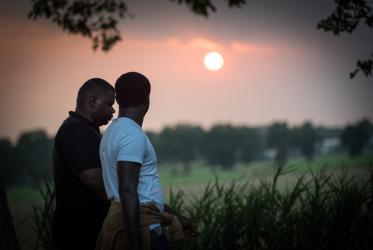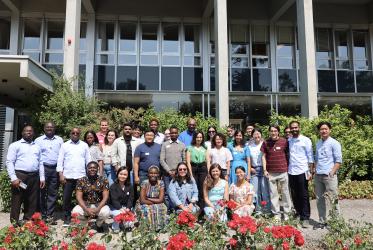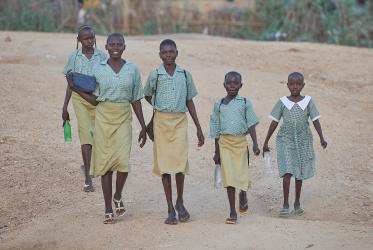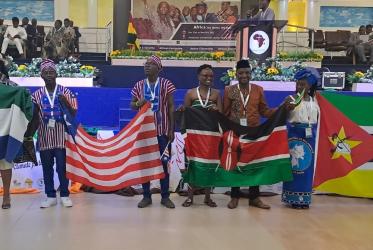Egypt, that ancient and mysterious land where the pyramids of Giza grace the hot desert landscape and the Pharaohs once reigned. A land overflowing with beauty and a historical richness unparalleled in all the globe. Today, it is a place whose regal image has been tarnished by the devastating consequences of revolution, economic decline, and fanatical religious zeal.
When I learned that the first ECHOS Commission meeting would take place in Cairo, my initial reaction could be best described as bittersweet. Sweet because, as a child, I dreamed of travelling to Egypt to visit the ancient tombs but also to see the glorious Great Sphinx of Giza whose story I had only read about in Greek mythological texts.
But my reaction was equally, if not more so, bitter, largely due to the fact that it would be my first time travelling to a North African nation whose identity locals more closely associate with that of the notoriously unpredictable Middle East.
It is no secret that Egypt has been plagued by all kinds of negative media attention in recent memory. So while preparing myself both logistically and emotionally for my voyage, I reviewed my national travel advisory website like any prudent traveller would do.
When I arrived at the page for Egypt the words “AVOID ALL NON-ESSENTIAL TRAVEL” splashed across the page in bright red capital letters as though some sort of breaking news headline had just erupted there.
But when I went to CNN, then BBC, and finally Al Jazeera to check out some of the country’s current events, I could find no recent local disturbance to evoke enough concern that would prevent me from accepting the WCC invitation. So what was all the fuss about? I thought.
In the days that followed, I learned in more depth that in 2011, indignant Egyptian citizens stormed in droves to Tahrir Square to demand that its purportedly ruthless leader, Hosni Mubarak, resign so that a more noble and efficient president could assume office.
Mubarak, who ruled Egypt for nearly thirty years, became its leader in 1981 after its former president Anwar Sadat was assassinated by Islamist militants. Although his reign was tolerated for nearly three decades, Egyptians became increasingly dissatisfied with the oppressive regime which imprisoned thousands of political prisoners and was accused of driving the already developing nation into further economic turmoil.
Four years and three presidents later, the atmosphere in Egypt was ostensibly calm but with a quiet tension that furtively lurked beneath the surface.
In the months leading up to my voyage, I, like many stunned spectators around the globe, watched helplessly as Coptic Egyptian Christians were brutally beheaded on Libyan beaches by ISIS militants.
I also read countless articles that recounted terrorist attacks that involved bombings most of which targeted tourists and foreign nationals. By all appearances, Egypt seemed to be dangerous territory rife with violence and instability.
Why on Earth, then, did the WCC ECHOS Commission want to host its first meeting there?
The Pilgrimage of Justice and Peace is a call to accompany the oppressed and all who suffer from the harrowing consequences of war and conflict.
Just as St Paul exhorted the Galatian Church to “bear one another’s burdens and so fulfill the law of Christ” (Galatians 6:2), so too are we called to walk alongside those who are forced to live under the tyrannical oversight of corrupt government officials and the constant threat of spontaneous terrorist acts.
For the ECHOS Commissioners, becoming pilgrims of Justice and Peace means stepping outside of our comfort zones and stepping into parts unknown.
When I accepted the invitation to attend the first ECHOS gathering in the context of the pilgrimage, I understood that this wasn’t a vacation to some exotic place to have fun. Rather, it was an opportunity to be transformed and to fulfill the Pilgrimage of Justice and Peace mandate “to work together in a common quest, renewing the true vocation of the church through collaborative engagement with the most important issues of justice and peace, healing a world filled with conflict, injustice, and pain.”
In the days that followed, I became a pilgrim putting into practice the World Council of Churches’ mission to seek unity, a common witness, and Christian service in a world where no corner of the Earth is unscathed by the deteriorating effects of sin and suffering.
What better place for the ECHOS commissioners to begin this pilgrimage than in Egypt, the land in which the people of Israel were held in captivity, then delivered by the hand of God, and led into the Promised Land?
In order to turn this pilgrimage theory into a reality, I would need to exercise that same courage and trust that sustained my ancestors in the faith and that continues to sustain my Christian brothers and sisters in the Middle East today.







